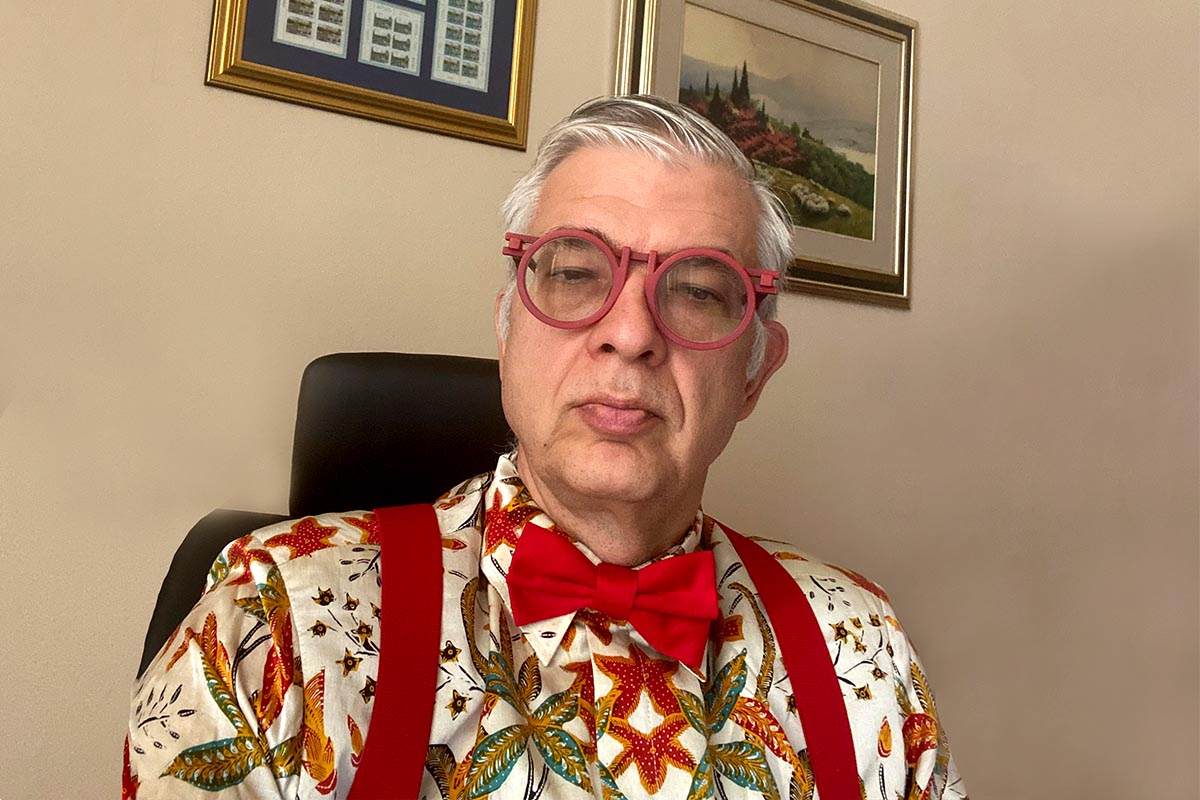Today’s world is characterised by the widespread application of digital technologies that enable the automating of intellectual jobs. At the essence of these changes is the shifting of the boundaries of what we understand as creative
An ever-increasing number of intellectual jobs can today beautomated and entrusted to machines. This phenomenon has far-reaching ramifications thar still ultimately unclear. Will human labour be completely replaced by the work of machines in 50 years; will we all live on a universal basic income secured by robots, or does the future contain at least a little humanity?
I’m endeavouring to find answers in real time to these questions, and similar ones that arise from them, in my academic work and business practices. The broad education that I’ve received – encompassing two basic educational profiles, two master’s dissertations defended, a multidisciplinary doctoral thesis, as well as a large number of completed online education courses, amongst which I always proudly highlight the education I was extremely grateful to receive from Professor Donald Kagan of Yale University – enables me in my business practices to constantly point out that the contemporary world isn’t divided by the border between the digital and the traditional, but rather by an approach to the problems of phenomena that change that world completely.
I’m determined to persevere on this path, despite the easily promised speed that most of us accept almost as easily – here I’m alluding to the title of a thirty-five-year-old book, because not giving up despite everything is perhaps the quality that makes us human most of all
After having spent 18 years at the University Library in Belgrade, mostly working on innovative, new jobs that have resulted, among other things, in more than ten projects of national importance in the field of digitising cultural heritage, in March 2021 I transferred most of my working time to the Serbian post office, Post of Serbia, where I began managing the section responsible for philately. Postage stamps, as a medium of national remembrance and a tool for diplomatic activities – to mention just two of their many roles – provide an important perspective, primarily for youngsters, to familiarise themselves with the world of patience and thoroughness, where observing a small square of paper potentially brings a much greater sense of excitement and usefulness than the quick solutions and ostensible sense of power that digital technologies offer us, often unintentionally, but very effectively and efficiently.
In this sense, postage stamps bear an incredible resemblance to the printed book, but also many other expressions of human creativity that require time and provide enduring benefits to those who have sufficient will, patience and knowledge to enjoy them. In the hope that I will succeed in finding even more allies who will help me – at least to some extent and for some time – to direct the inexorable and for now predominantly impulsive march of digital transformation and convince as many people as possible to study not only the characteristics of new digital technologies, but rather also the value of traditional media for conveying knowledge and artistic expression, in order for us to be able to collectively, as a society, utilise the advantages of both worlds and avoid their dark sides to the greatest possible extent. I’m determined to persevere on this path, despite the easily promised speed that most of us accept almost as easily – here I’m alluding to the title of a thirty-five-year-old book, because not giving up despite everything is perhaps the quality that makes us human most of all.
